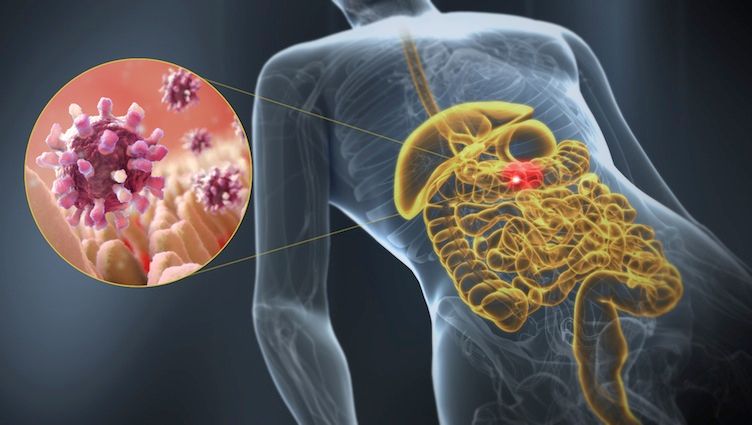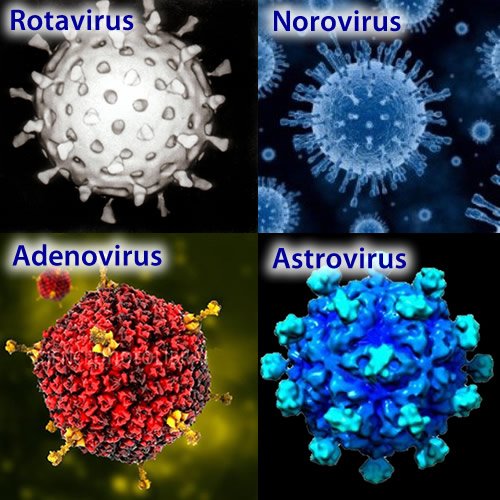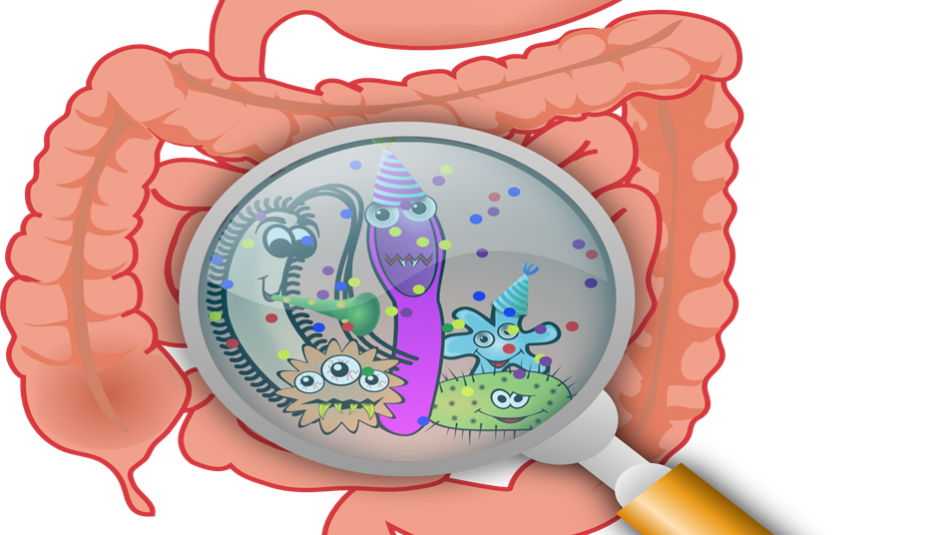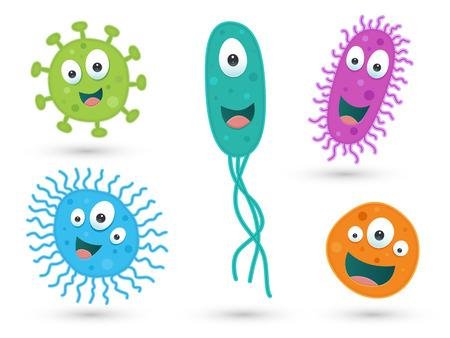Doc Talk #10 Viral gastroenteritis - A messy problem
During the winter season plagued by flu virus, cold and various other ailments there is also greater prevalence of viral gastroenteritis. An illness caused by couple of groups of viruses that lead to stomach pain, cramps, fever and most notably - diarrhoea.
Gastroenteritis means infalmation or infection of stomach and intestines.

Types of gastroentertitis
Viruses are causing about 40% of infectious diarrhoea in developed world which puts them in second place overall, just behind upper respiratory tract infections. The principal way of transmission is faeco-oral, as gross as it sounds, and consumation of tainted food.

The most notable virus to cause gastroenteritis in children must be the infamous rotavirus. Rotavirus alone causes 65% of severe diarrhoea in the world. Rotavirus is most often found in temperate climates during winter. However, it's not the only one. There are adenoviruses, astroviruses and Norwalk virus as well.
It is important to note that the transmission of virus is extremly likely because virus can be transmitted without person affected showing any symptoms, during the acute phase of the disease and even up to 7 days after the symptoms have been resolved.

Symptoms and Diagnosis

Symptoms can vary a lot fromt person to person. It could range from completely asymptomatic infection all the way to the life threatening dehydration.
However it typically presents as:
- fever
- nausea and vomiting
- diarrhoea

Diarrhoea usually lasts from 2-4 days, but it can last up to 2 weeks if it's caused by adenovirus.
High fever, abdominal cramping and a lot of blood and mucous in stool almost always points to the viral gastroenteritis.
Definitive diagnosis is made by laboratory test, however they are mostly unnecessary as diagnosis can successfully be made by clinical signs.
How to treat?
Treatment of viral gastroenteritis is symptomatic. That means we treat the symptoms and not underlying cause because the body will eventually deal with the virus.
Treatments consists of fluid and electrolyte intake. By consuming enough of fluids and minerals we prevent dehydration and it's severe complications such as hypovolemic shock (Acute deficit of fluids in the blood system).
Antibiotics are not effective because antibiotics don't treat viral infections!
Drugs that prevent diarrhoea or vomiting are not recommended!

In the last couple of years there's been some data that points out the benefits of probiotics in treatment and prevention of viral gastroenteritis.
Probiotics are non-infectious, live microorganisms (bacteria), which work together with our body and have a wide range of benefits. Among a lot of things they do they also reduce the severity and frequency of diarrhoea and they also show benefit in other disease as well: alergic reactions, constipations, urinary tract infections.
Probiotics significantly reduce intensity of symptoms and they shorten the duration of disease!
I hope you don't catch one this year and if you do that this article helps you
Sources:
- all images are found on Google and they belong to their respective owners
- all data is acquired by my medical education in medical school. Mostly during infectology classes and pediatrics.
Have a nice day,
@fitdoc
Informative, thanks.
It's good to know these things you pointed out.
Water and fluids are vital to prevent dehydration.
Probiotics can be very helpful.
Do you have recommendations of some natural probiotics?
What symptoms are different between viral and bacterial diarrhea?
Hi, thanks for your questions I'm happy to help :)
Probiotics in my opinion are rather controversial, not their effectiveness but their marketing. I wouldn't take them in the form of pills unless I had symptoms that required their use. In that case I check which one to buy at examine.com It's an awesome website that tests supplements.
What you can do all year round is to eat foods that feed the good bacteria. They are called pre-biotics. I don't have any solid data, but I think that would be even more effective than taking probiotics ocasionally. There are limits to this, for example if you weren't breastfed or you had a course of antibiotics then I would take them in form of pills. Make sure you take at least 40-50 bilion CFU-s a day.
As for the bacterial diarrhoea. It's rather rare condition in developed countries and far more serious. It can come in form of food poisoning and then it's very mild or it doesn't happen at all in my experience. It's over withing 48 hours as opposed to viral that lasts up to week in most cases. Others forms of diarrhoea caused by baceria are not really of concern unless you had an aggressive antiobiotic treatment (C. diff. overgrowth) or you caught cholera (which is not likely to happen).
Thanks for the feedback :)
Thanks for your answers.
I've read that sour kraut, kim chi and yogurt are good probiotics. Do you know of other foods?
Amoebic dysentery also causes severe diarrhea. When I've traveled in Mexico in the past, if I got diarrhea I would only drink lots of water for a day to starve the amoebas and then the following day eat lots of watermelon to help flush them out. Seemed to work pretty well. Don't know if I had amoebic dysentery or something else. But the main thing is, I recovered.
You actually might have had that. That's pretty rare condition here in Southern Europe.
Any fermented foods are excellent sources of probiotics and prebiotics. I eat ton of Sauerkraut. Cheese is good as well (if done properly, but they don't come cheap). Any homegrown organic vegetables are good source of probiotics.
Thanks.
Do the homegrown organic vegies need to be fermented or is fresh or stewed ok for probiotics?
Fresh is more likely to act as a probiotic since in that way heat doesn't kill bacteria that are living on the veggies
Thanks again